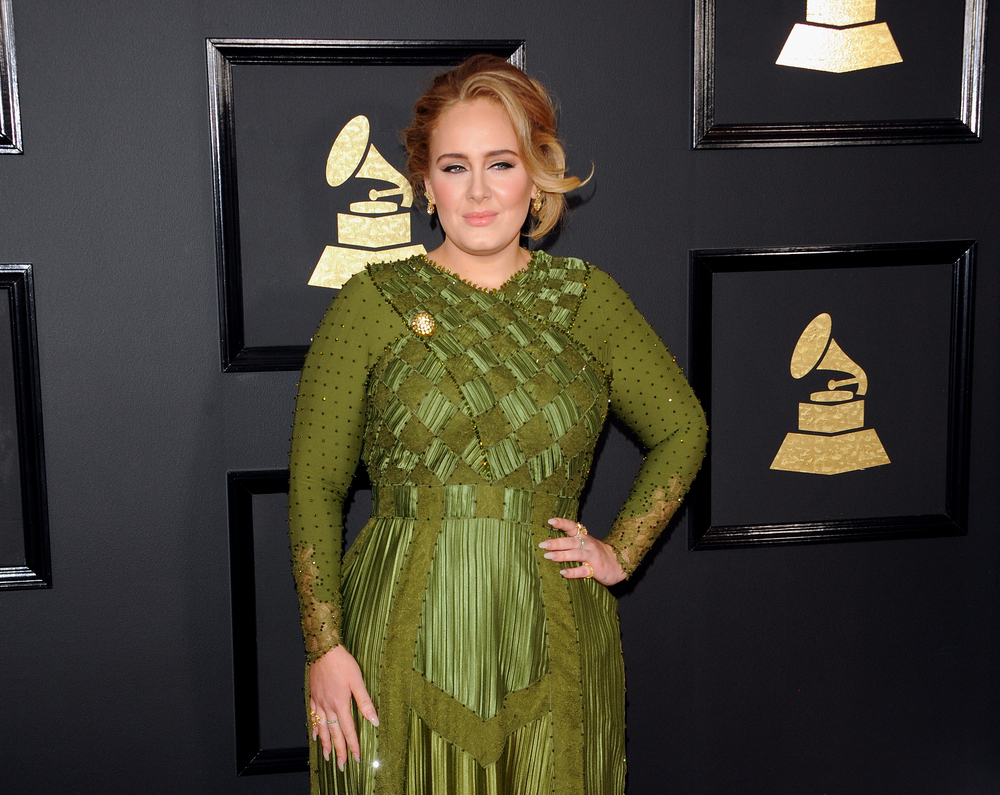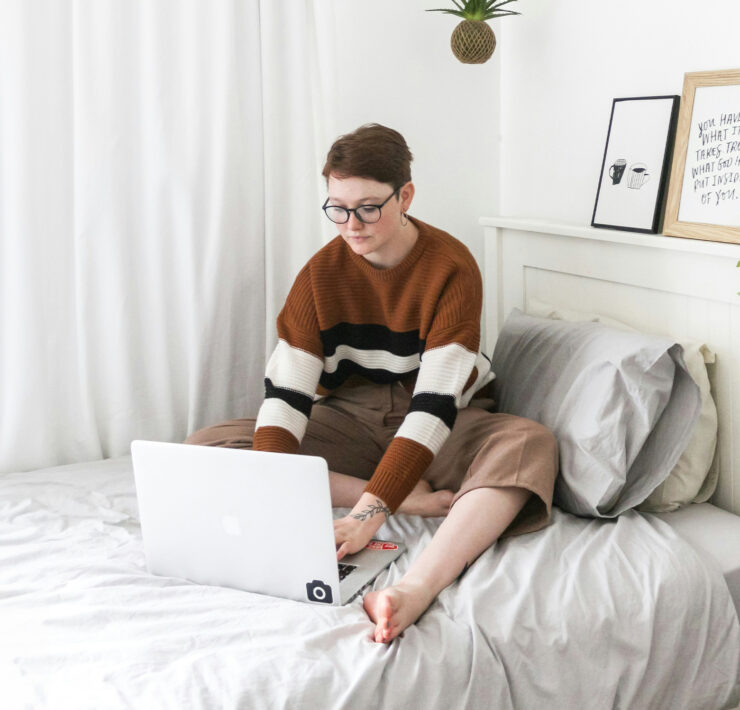
Sometimes, the hardest part of maintaining a healthy mindset is taking the time to ask ourselves how we’re really doing. We live in a fast-paced culture that throws varying messages at us all day long. Setting aside time throughout the day to check in on our mental health is not a common habit for us, although it definitely should be.
This is a habit Michelle Williams knows well and has implemented into her daily routine. After spending years in the spotlight as part of Destiny’s Child and a solo act, Williams’ mental health demanded time and attention. In her latest book, Checking In: How Getting Real About Depression Saved My Life—and Can Save Yours, Williams explains how she has made checking in with God, herself and others gave her freedom.
Mental Health Matters is a fall article series from RELEVANT, presented by UHSM.
Williams spoke with Brittany Moses at the UHSM 2021 Reset Summit on how checking in changed her life, and how others can check in with theirselves.
This conversation has been edited for length and clarity.
Brittany Moses: A lot of us have grown up with you and witnessed your success over the years, especially in relation to Destiny’s Child. But what some may not know is how you were grappling with your mental health behind the scenes and had been for some time.
There’s this moment that you mention in your latest book, where you’re in your 20s with Destiny’s Child, and you remember telling your team, “Hey, I feel like I might be depressed,” to which a member of your team said, “Y’all just signed a multimillion dollar deal. You’re about to go on tour, what do you have to be depressed about?” I think your story is a prime testament to something we always advocate: that mental health challenges don’t discriminate, no matter your status, paycheck, background, belief. What were some of the signs that made you think there might be something more and what led to you getting real help?
Michelle Williams: In my 20s, when I was in Destiny’s Child, I definitely had that moment feeling that I was depressed. And I’ve talked to that person since then and he told me, “Michelle, had I known then what I know now about depression,” he said, “my response to you would’ve been much different and I would’ve gotten help, but we just didn’t know.” And he said, “I was just trying to get you to see the good things that were going on.” Because I think at that time, people might think, “Well, maybe the person doesn’t realize how good they have it. And maybe once you lay it out to them, how good they have it, they won’t feel sad anymore.”
I will say it helped a bit. It helped me snap out of it and say, “We’ve got great things going. I don’t want what I’m feeling to ruin or hinder me from moving forward from enjoying what I do have.” But I will say that the symptoms of depression started way before I was ever in my 20s. Depression, for me, when we really trace it back, it started for me around the seventh grade. My grades started dropping. I started not wanting to do things or be around people, trying to isolate myself. So, it started back then, but I didn’t even have the language. I don’t even know if depression was in my word bank at 12 or 13 years old.
What you’re saying makes so much sense because mental health statistics have shown that a lot of diagnoses begin to onset around age 14. At that age, we don’t really have a language for it, we just know what we’re feeling. But something that you advocate along with this are these three key pillars of “checking in” — checking in with God, checking in with ourselves, and checking in with others. I love it because it’s holistic, and it’s what we’re all about: upward, inward, outward relationships. What does that practically look like, to check in?
Like you said, checking in with yourself, checking in with others, checking in with God. It can be in whatever order you want it to be in. Checking in with God, we know what that looks like — it’s having an honest conversation with God, or it could be a moment of just gratitude. You just want to say, “God, I’m so thankful.” It could be a moment where you’re like, “God, I’m overwhelmed. I know you want us to have peace and I know you don’t author confusion, so what’s going on here?” It’s literally keeping God in everything you do, honoring Him and just trying to keep Him in the center of all that you do. Checking in with others is simply checking in on your loved ones or making sure that you’ve got someone checking in on you, holding you accountable. As the world and cities and our country continues to open up, check in with some friends.
Checking in with yourself simply looks like being self-aware. I was having a conversation with someone and then moments later, I called them back. I said, “Did I seem a little irritable?” So, I was able to check in with myself, but it took a lot of time to be able to respond quicker to when you’re feeling a certain way, that way you don’t offend or defile someone that has nothing to do with why you’re irritable. I don’t know why you’re irritable, is it because you didn’t eat yet? Well, that doesn’t mean you are supposed to stress me out because you are hungry. So, a minimum of three times a day, I’m checking in with myself. First thing when I wake up in the morning is to check in with God and myself. By about 1, I’m saying, “All right, the day is going as I declared it to be.” Now, I can’t control life that’s thrown my way, but I am in control of how I respond. You got to work on being self aware. Then, by the time I go to bed, I’m just ready to be like, “All right, girl, it’s time to go to sleep.” I turn on my oceans and all that stuff and I’m out.
Everything that you’re saying is really this lifestyle of checking in, this lifestyle of self-awareness. In today’s world, we’re so reactive to everything that’s going on around us that maybe we’ve lost or maybe it slipped away. I think there’s something that a lot of us relate to here in your story, especially with being in a social media world. As you mentioned, you were in the height of your success with Destiny’s Child and being in the spotlight, that comes with an image. And in another way, I think people relate to that today.
I’m wondering what encouragement you might have, even looking back at your past self, for someone right now who is in somewhat of a similar place, where maybe they feel the pressure to maintain their image and have a hard time being the person who is checking in or receiving help when they need it?
There are a few social media pages I follow for laughter or keeping my finger on the pulse of what’s going on. But for the most part, I try to follow people that are inspiring; I try to follow people that make me want to be better. I love when I can wake up or go throughout my day and say, “I’m going to get on Instagram or whatever, and I’m going to see what’s going on.” And you find a quote, a testimony or something that someone shares and it just inspires you. So, I think you should curate who you follow so that it’s inspiring. Maybe one or two pages that make you laugh, not laughing at people, but just kind of laughing like, “Oh gosh, I never thought about that.”
I love when I’m following shows or a page where it shows a baby laughing, things like that. So, I would just say, curate your page. If something or someone that you’re following brings up emotions that aren’t healthy, click the unfollow, or you can press the mute button. They won’t even know that they’re muted. Because some people might be offended if you’ve unfollowed, then that’s a whole conversation that you got to try to have that you’re probably not even emotionally ready to have. So just mute them, they won’t even know.























